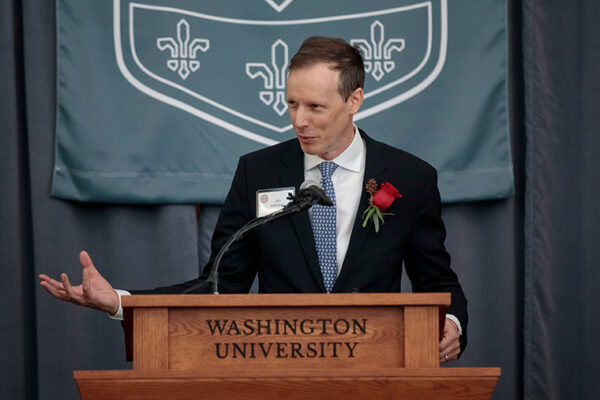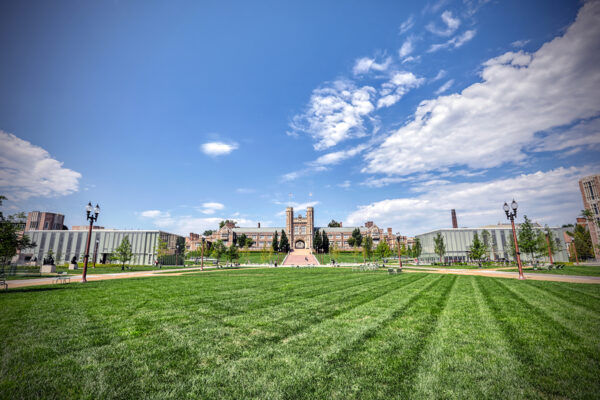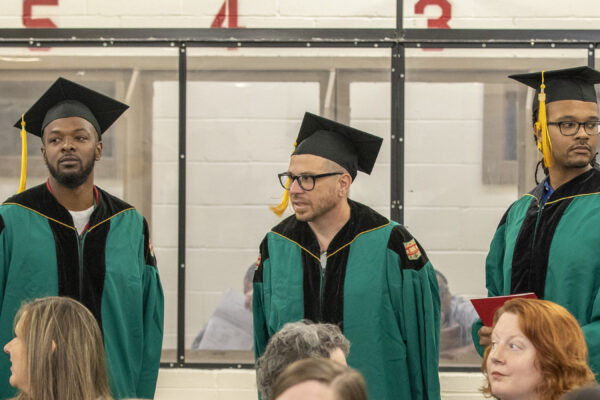In celebration of another year of change and discovery at Washington University in St. Louis, the Source shares some of its most-read stories of the year.
Celebrating our changing campus:
New era in engineering to begin at Washington University
Furthering its strong trajectory as a leader in research and innovation, the engineering school unveiled an ambitious strategic vision and a new name — the McKelvey School of Engineering, in honor of trustee and distinguished alumnus James McKelvey Jr.
Check out 10 must-see east end highlights
Sweeping views. An expansive park. And a killer turkey wrap. These are just a few highlights of the newly completed east end project, the university’s largest capital project in recent history. The east end encompasses 18 acres of the Danforth Campus, adds five new buildings, expands the university’s world-class Mildred Lane Kemper Art Museum, moves hundreds of surface parking spaces underground and creates a new park where students can meet, relax and celebrate.
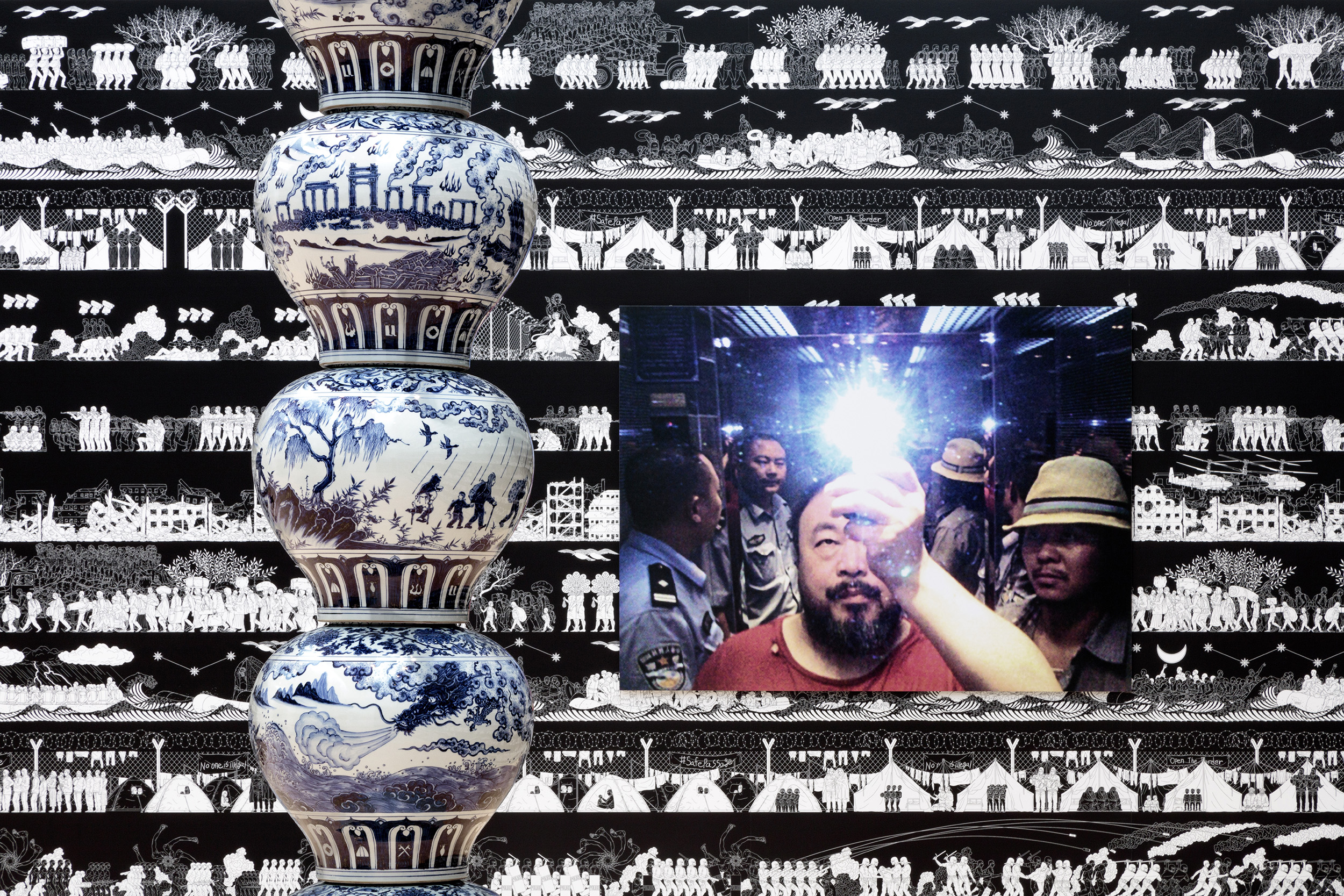
Kemper Art Museum to present ‘Ai Weiwei: Bare Life’
Art lovers were thrilled to learn the newly expanded and renovated Mildred Lane Kemper Art Museum would reopen with a major exhibition of work by Ai Weiwei, the renowned Chinese dissident artist. The acclaimed exhibition closes Jan. 5.
Understanding our brains:
Brain tunes itself to criticality, maximizing information processing
Keith Hengen, assistant professor of biology in Arts & Sciences, published new research that confirms that the brain tunes itself to a point where it is as excitable as it can be without tipping into disorder, similar to a phase transition.
Emotional violence in childhood, adolescence associated with suicidal thoughts
Lindsay Stark, associate professor at the Brown School, found that emotional violence may actually be more powerful than physical and sexual abuse in its impact on adolescent suicide behaviors in low- and middle-income countries.
Blunting pain’s emotional component
School of Medicine researchers are moving closer to developing a pain killer that could curb the negative emotions associated with pain without causing the euphoria associated with addictive opioids.
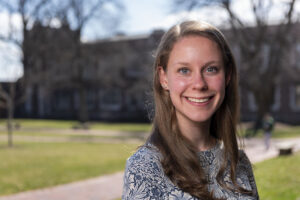
How team sports change a child’s brain
Lisa Gorham, who graduated in May with a degree in cognitive neuroscience in Arts & Sciences, used data from the nation’s biggest study of youth brain scans to prove what she instinctively knew as an athlete — team sports and adolescent mental health are linked.
Expanding educational opportunities
Newly inaugurated Washington University Chancellor Andrew D. Martin makes ‘WashU Pledge’
At his inauguration as the 15th chancellor of Washington University, Andrew D. Martin made a big, bold announcement that pleased students and parents across the region — Washington University would provide full tuition, room, board and fees to any admitted student from Missouri and southern Illinois who are Pell Grant-eligible or from families with annual incomes of $75,000 or less. Zussy Chavira Duron, a senior at Collegiate School of Medicine and Bioscience in St. Louis, was among the first students to benefit from the new initiative. In December, university leaders and the WashU Bear surprised her at College Bound St. Louis with an acceptance letter and a full WashU Pledge scholarship. “I can’t believe this is happening,” whispered Chavira Duron while hugging her mother. In addition, Washington University announced the launch of two grants to offset computer and other college startup costs.
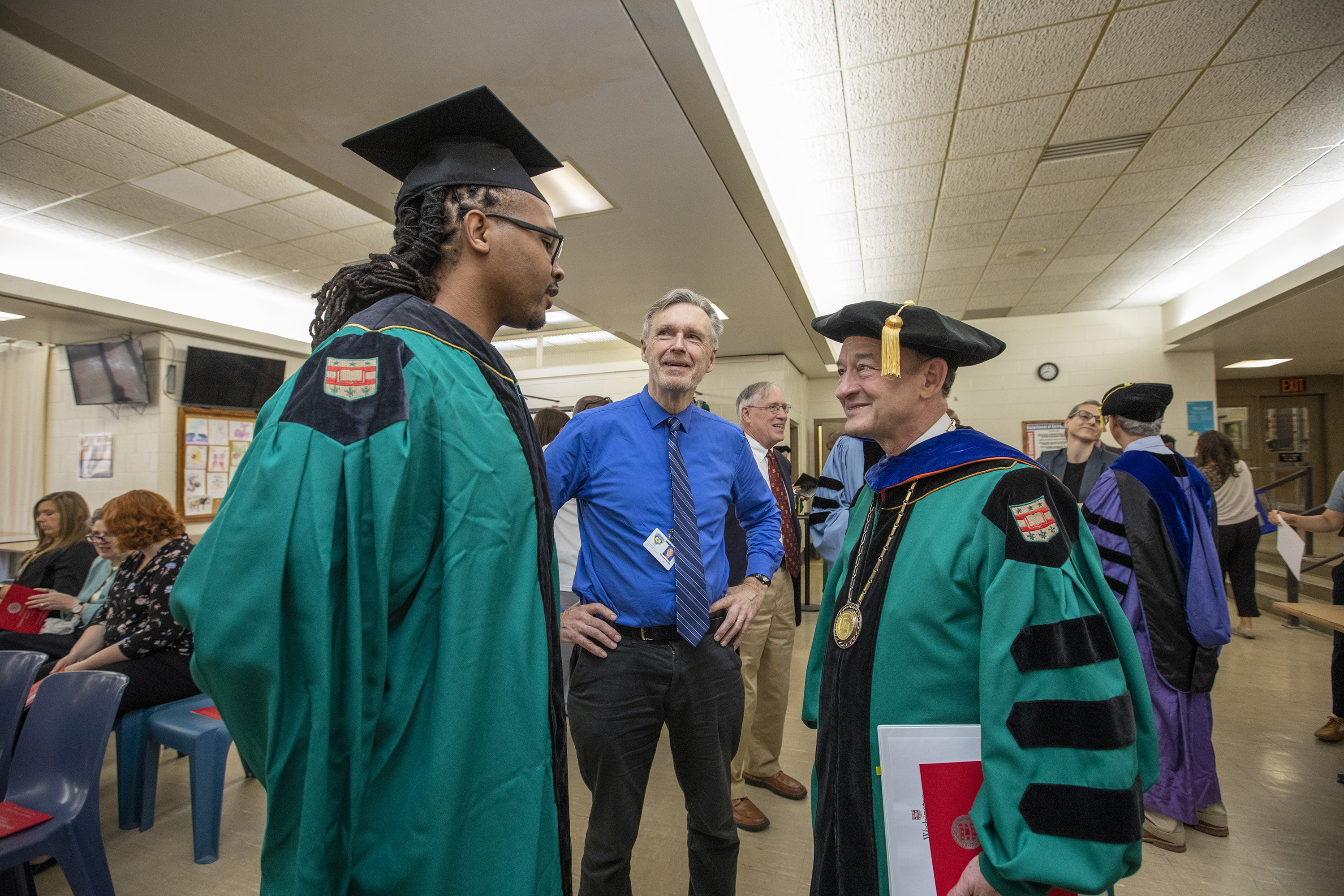
On May 22, Chancellor Mark S. Wrighton presided over his final commencement and the first such ceremony at Missouri Eastern Correctional Center in Pacific, Mo. Ten incarcerated students earned their associate degrees via Washington University’s Prison Education Project (PEP).
Washington University commits $100 million to MD scholarships, education
As many as half of future medical students now will attend the School of Medicine tuition-free and many other students will receive partial tuition support. The initiative is a big investment in its students, as well as in the health of St. Louis and the greater global community.
Protecting human health:
Topical immunotherapy keeps skin cancer risk at bay
The research of Washington University dermatologist Lynn Cornelius, MD, found that a combination of two topical creams already shown to clear precancerous skin lesions from sun-damaged skin also lowers the risk that patients will later develop squamous cell carcinoma of the skin, the second most common cancer in the nation. That’s a big deal because the cancer and its treatment can be disfiguring, costly and even life-threatening.
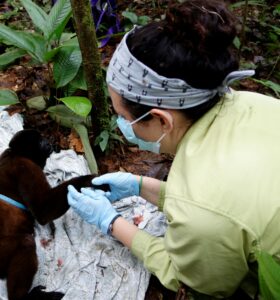
Are there Zika reservoirs in the Americas?
Krista Milich, assistant professor of biological anthropology in Arts & Sciences, is trying to determine whether nonhuman primates in South America have been infected with Zika. But first, she needed a noninvasive way to check the animals for the virus. The solution: test their feces. The research has consequences for human health because most emerging infectious diseases are zoonotic — that is, they jump from animals to humans.
Blood test is highly accurate at identifying Alzheimer’s before symptoms arise
Up to two decades before people show the characteristic memory loss and confusion of Alzheimer’s disease, damaging clumps of protein start to build up in their brains. Now, a blood test that detects such early brain changes has moved one step closer to clinical use. When combined with age and genetic risk factor, the test, developed by School of Medicine researchers, is 94% accurate.
Rethinking our environment:
Lots of lead in the water? Maybe manganese is to blame
Research at the McKelvey School of Engineering shows that manganese, in conjunction with certain other chemicals, can lead to big changes in the water in lead pipes. Depending on what disinfectants are used in the water, those changes can have significant — even dangerous — consequences.
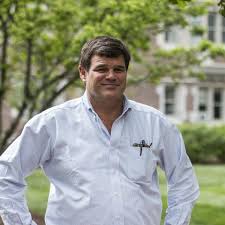
Time to retire the ‘pristine myth’ of climate change
T.R. Kidder, the Edward S. and Tedi Macias Professor of Anthropology in Arts & Sciences, contributed to one of the first “big data” studies in archaeology to tackle questions of how humans have reshaped landscapes and, potentially, climate over millennia.
How fast fashion hurts environment, workers, society
In the paper “The Global Environmental Injustice of Fast Fashion,” Christine Ekenga, assistant professor at the Brown School, argues that the overabundance of fast fashion — readily available, inexpensively made clothing — has created an environmental and social justice crisis.
Michael Bloomberg announces Midwestern Collegiate Climate Summit
The Midwestern Collegiate Climate Summit will bring together leaders at Midwestern universities, local government and the private sector to drive measurable, local action on climate by leveraging the partnerships, innovations and talent from Washington University and other institutions of higher education.
